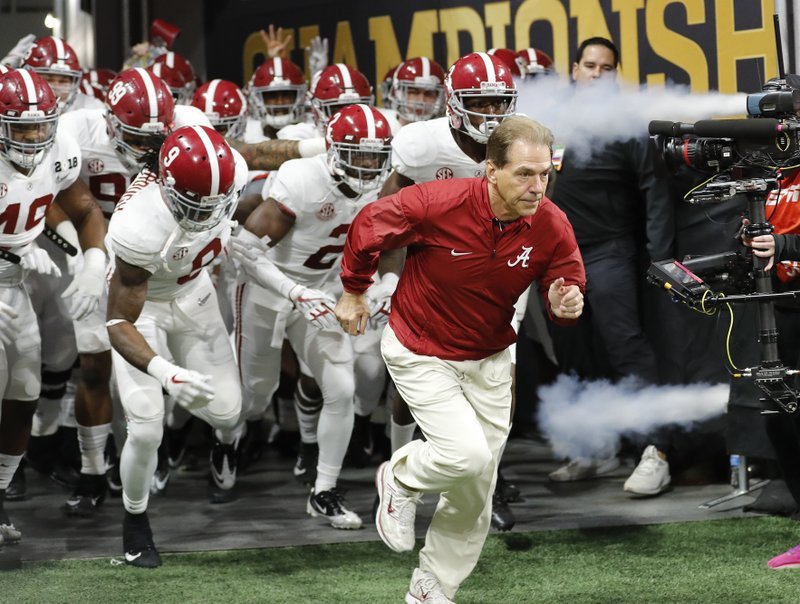Big Shoes
Little feet can’t resist big shoes. My granddaughter is closer to two than she is to one and nothing is more attractive to her than an empty pair of grown-up sneakers. Especially her mom’s. She’s determined, too. She’ll work with the focus of a surgeon to slide her feet underneath the laces and then willfully scoot around. Danger is at every turn in the giant kicks that are almost the length of her tiny little leg, and yet she doesn’t seem to notice or to care. It’s as if whatever risk is there is worth it; she will not be deterred. What she wants is to be what she feels like she is when she wears her mama’s shoes: Big.
It’s what we all think we want until we are.
I used to get all kinds of letters from aspiring coaches when I had the corner office of the women’s basketball complex at the University of Oklahoma. About every third one of them said, “I want to know how to get a job like yours. I just want to coach basketball, not deal with all this other stuff.” I’d answer them with the gospel truth: “You don’t want my job then.” The basketball was buried so deeply underneath the “other stuff” that getting to the court most days was like a giant game of Where’s Waldo. Things that had to be done were woven into and around all the things I longed to do. And most of them were hard.
Retrieved from www.wktysports.com/
It's easy, though, to watch Nick Saban run out of the tunnel from inside a giant plume of smoke and want to be “big” like him someday. As you watch him in his one-ear headphones from your 50 yard line seat, what you cannot see is his to-do list, or the piles in his office that have spilled from his desk to the credenza to the floor, or the invisible backpack he is wearing full of other people’s ills. The ball is the work that only works if the other stuff gets done.
That’s the trick about growing up. The fun balloons come with strings attached to things that aren’t that fun. CEOs know. So do presidents. And small business owners. And coaches and teachers. And parents. While big shoes look alluring from the distance, they’re not that easy to wear.
Little people, however, do not care. Big is their nirvana. They can’t wait to be like the towers that pick them up and swing them around… and drive cars… and make money… and live anywhere they want. Their eyes dance as they watch us do all the things we get to do, and little looks as lovely as the spoils that come from being big.
That means we need to pay attention, I think, to how we carry our load.
Being big doesn’t mean you can’t be silly or laugh or say what you really think or ask questions when you don’t understand. It doesn’t mean you have to act and dress and talk like everybody else. The responsibilities are, no doubt, immense, as are the decisions that have to be made and the dilemmas that have to be solved. A lot of heavy comes with being big. But that doesn’t mean that we can’t have fun just because we become grown-up.
There’s this poignant scene in the movie Big where Josh (played by Tom Hanks), the little boy who has his “be big” wish granted, is walking wistfully through his old neighborhood as a man who missed the middle and is still a kid inside. He watches his friends ride their bikes, play in enormous piles of leaves, take a goofy class picture in front of the school, play baseball at the local park. And he aches to be unencumbered. He aches for the laughter, for the friendships that aren’t so complicated by all the invisible grown-up rules. He misses his childhood. He misses the boy he still is inside, the one that has been buried beneath the external entrapments of his tricked-out apartment and his uber successful life. He yearns for the simple joy of simply being a kid.
It’s hard not to miss that innocence when taxed with being big.
If the movie had a moral (and I’m not sure it did), it might be that keeping the child inside alive once our bodies are grown up is vital. Every big person Josh interacts with becomes better for what rubbed off on them from him. Or it might be that we miss the glory of whatever stage we’re in by always longing for the one that’s next or the one we left behind. We big people often struggle with being where we are.
All I know is my granddaughter gets this look on her face when she sees her mama’s shoes. It’s a mixture of mischief and confidence as she beelines toward them with purpose in her eyes. I think she likes the lure of the shoes and the challenge of moving around successfully in them, but I think she likes being like her mama even more.
And that’s what we have to remember, those of us who are already big. Little ones are always looking to be like whatever it is we are. So how we carry what we have to carry matters. And it never hurts to leave some fun inside our shoes.
P.S. Big (1988)


